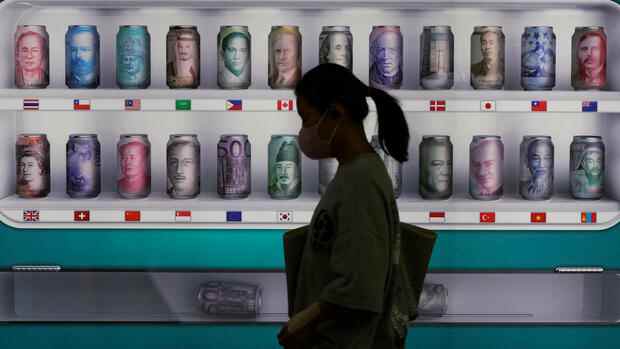Asia’s central banks are waging a kind of reverse currency war.
(Photo: AP)
Frankfurt It was a historic moment. For the first time since 1998, the Japanese central bank intervened in the foreign exchange market at the end of September to support the national currency, the yen. In one day, she wagered nearly $20 billion. The currency watchdogs in South Korea, Taiwan, India and the Czech Republic have done the same in recent weeks and months. They have typically sold US government bonds and bought their own currency. According to estimates by the DZ Bank, global foreign exchange reserves have melted by more than a trillion dollars since the beginning of the year.
Such interventions are actually taboo among central bankers. The motto is that the exchange rate should be formed on the market. In practice, however, it often happens that monetary authorities deviate from this in exceptional cases. In the past, the aim was often to weaken one’s own currency in order to depress prices for export goods and gain a competitive advantage.
Read on now
Get access to this and every other article in the
Web and in our app free of charge for 4 weeks.
Continue
Read on now
Get access to this and every other article in the
Web and in our app free of charge for 4 weeks.
Continue
